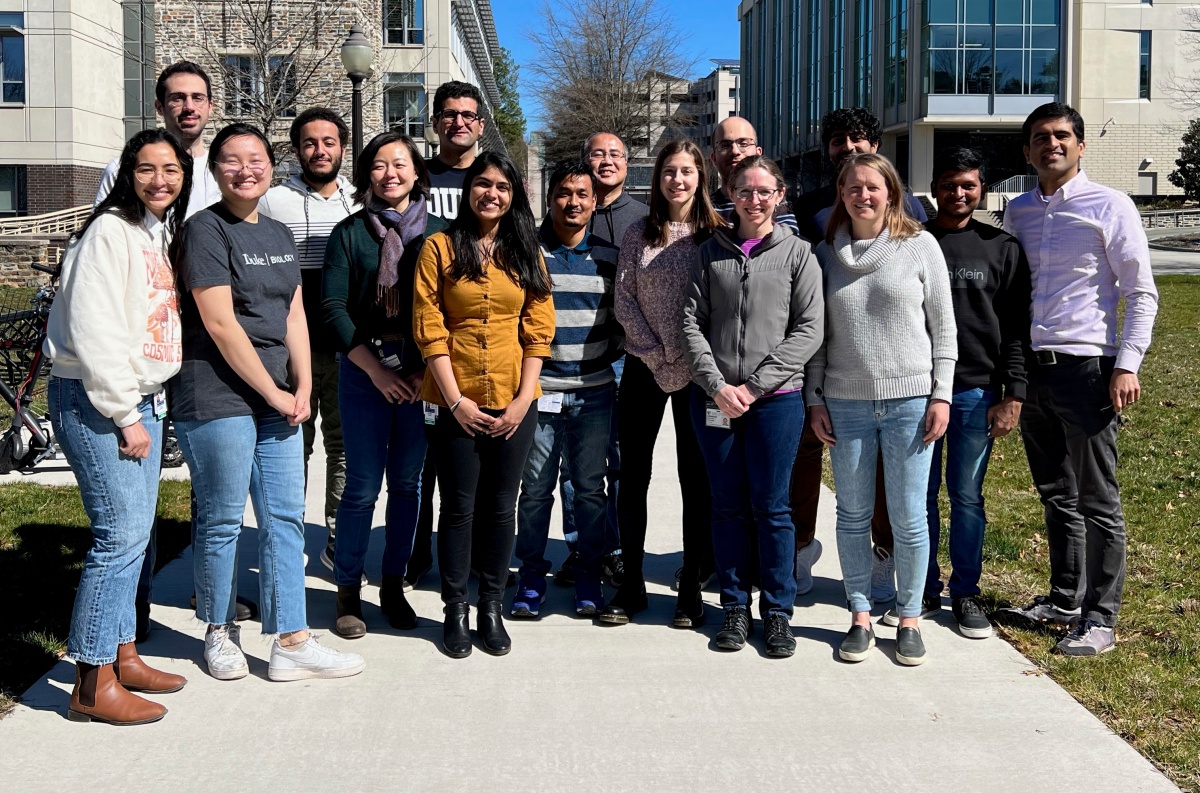Gastroenterologist and researcher Jatin Roper, MD, has been awarded his first R01 grant from the National Cancer Institute of theNIH to identify mechanisms by which obesity-induced Wnt signaling promotes colorectal cancer progression.
The funding comes through a Method to Extend Research in Time (MERIT)(R37) Award, which provides longer term grant support to early stage investigators. The grant is generally five years in duration, but Roper’s proposal was so well scored that he is eligible for seven years of funding.
“This is a remarkable achievement,” says Andrew J. Muir, MD, chief, Division of Gastroenterology. “From watching Dr. Roper over these last three years at Duke, this was a matter of time. Dr. Roper arrived with such a strong foundation in his basic science training, and he took a diligent approach to building his team and establishing the culture for his laboratory. He followed that with a tremendous work ethic in the pursuit of his research. I am so pleased for him and his whole team.”
As rates of obesity are rising throughout the world, Roper says that timely scientific insight is needed into the reasons that obesity increases the risk of cancer development as well therapeutic targets to help patients.
“My research lab is focused on understanding how obesity promotes a signaling pathway called Wnt signaling in special cancer cells called stem cells,” he says. “There's a lot of interest in understanding how cancer stem cells function because these cells may be responsible for both cancer progression and resistance to treatment. So, a very exciting question for me is how obesity changes the function of cancer stem cells, and how can we target this subset of cells.”
The study will, Roper proposes, provide preclinical rationale for clinical trials to test Rac1-GTP inhibitors for the treatment of colorectal cancer, particularly in obese individuals, by inhibiting Wnt signaling. Roper has found that specific components of the Wnt signaling pathway are highly upregulated in high fat diet-induced obesity, so therefore hypothesizes that disrupting this mechanism of Wnt activation will successfully treat obesity-associated colorectal cancer
Research from Roper’s postdoctoral fellowship at MIT demonstrated that diet-induced obesity markedly upregulates Wnt signaling in intestinal and colonic stem cells by promoting a peroxisome proliferator-activated receptor delta (PPAR-d) transcriptional program, which in turn increases cancer development. The findings suggest that inhibition of Wnt signaling is a highly attractive therapeutic strategy for obesity-associated colorectal cancer, and provides a rationale for the funded research study.
 Roper, assistant professor of medicine, Pharmacology and Cancer Biology joined the Duke faulty in 2019. His laboratory is interested in understanding the molecular mechanisms of stem cell function in gastrointestinal injury, regeneration, and cancer. Roper’s lab focuses on three areas: 1) immune and microbial regulation of intestinal stem cells and cancer; 2) the effects of diet-induced obesity on cancer development and response to immunotherapy; and 3) analysis of colorectal cancer heterogeneity with the goal of identifying cell subpopulations that drive tumor progression.
Roper, assistant professor of medicine, Pharmacology and Cancer Biology joined the Duke faulty in 2019. His laboratory is interested in understanding the molecular mechanisms of stem cell function in gastrointestinal injury, regeneration, and cancer. Roper’s lab focuses on three areas: 1) immune and microbial regulation of intestinal stem cells and cancer; 2) the effects of diet-induced obesity on cancer development and response to immunotherapy; and 3) analysis of colorectal cancer heterogeneity with the goal of identifying cell subpopulations that drive tumor progression.
As a postdoctoral fellow at Massachusetts Institute of Technology, he also pioneered novel transplantation and CRISPR/Cas9 gene editing models of colorectal cancer that recapitulate the adenoma-carcinoma- metastasis sequence and applied these innovative tools to demonstrate that Lgr5+ cells function as cancer stem cells in colorectal cancer.
Roper's research program has been recognized by the Forbeck Scholar Award, the Whitehead Scholar Award, and the Malcolm Tyor Award. His lab is composed of five postdoctoral fellows, one research assistant professor, four visiting research scholars, and five Duke undergraduate students. His research program is supported by independent grants from NIH/NCI, Department of Defense, multiple foundation awards, and industry sponsored research agreements. Postdocs Diana Li, PhD and Saratchandra Khumukcham, PhD, will be working on the project with Roper.
Photo: Dr. Roper (far right) and his lab researchers.